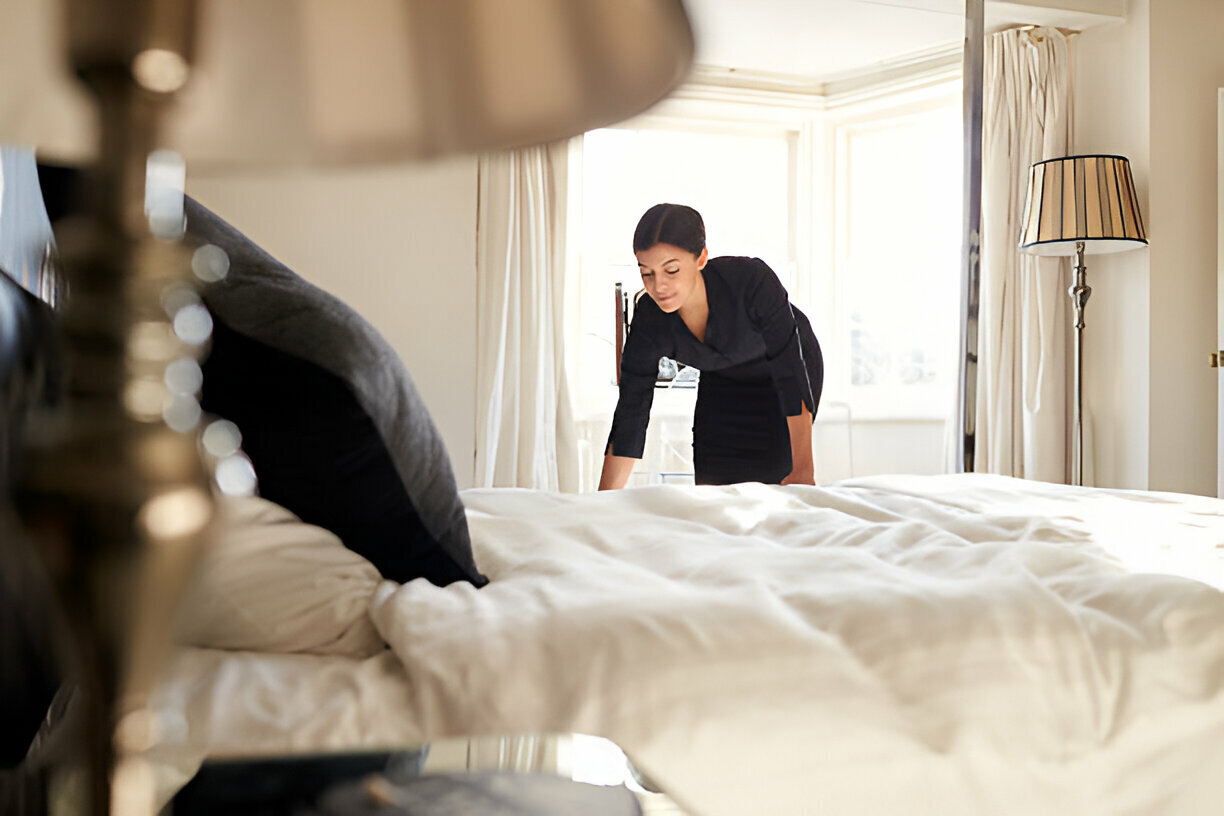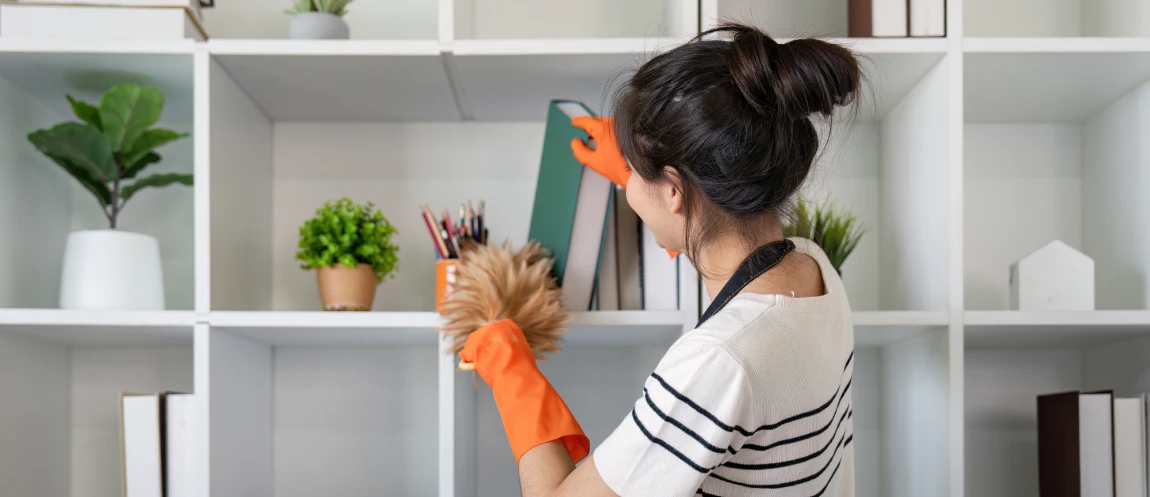A clean bedroom does more than please the eye. It affects how you sleep, how you feel, and how well you recover. While tidying the bed is a start, thorough cleaning transforms the space into a healthier, more breathable retreat.
A truly clean bedroom supports rest, reduces allergens, and improves air quality. It also prevents the buildup of dust, skin cells, and hidden clutter that collect over time. Professional home cleaning services take this further, reaching the spots most routines skip.
Why A Clean Bedroom Matters More Than You Think
This space isn’t just where sleep happens, it’s where health begins. Allergens, airborne dust, and grime can all accumulate in unnoticed areas, quietly affecting your well-being.
A cleaned bedroom can:
- Boost Air Quality: Surfaces like curtains, fans, and vents can trap pollutants.
- Enhance Sleep: A tidy environment promotes deeper, more restful sleep.
- Lower Stress: Cluttered surroundings increase mental fatigue and make mornings chaotic.
- Prevent Health Issues: Mold, pet dander, and dust mites can trigger allergies and breathing problems.
The Overlooked Spots Most People Miss
Regular cleaning habits often skip essential areas that contribute to a fresher and healthier space.
Behind and Under the Bed
Hard-to-see areas collect allergens, old debris, and sometimes even misplaced items.
Ceiling Fans and Light Fixtures
These catch and redistribute dust back into the air every time they move.
Curtains, Blinds, and Window Tracks
Often ignored, these areas trap allergens and outdoor grime. Vacuuming or washing them regularly can make a big difference.
Mattress and Pillows
These absorb oils, sweat, and skin cells every night. Deep cleaning helps extend their life and keeps your sleeping surface hygienic.
Daily, Weekly, and Monthly Cleaning Tasks
Keeping your bedroom clean isn’t about perfection; it’s about consistency. A set rhythm can maintain order without being overwhelming.
Daily Tasks:
- Make the bed neatly
- Tidy up clothes and surfaces
- Open windows for ventilation
Weekly Tasks:
- Dust furniture and surfaces
- Vacuum thoroughly, including under furniture
- Change sheets and pillowcases
Monthly Tasks:
- Wash curtains or wipe blinds
- Vacuum and rotate the mattress
- Clean windows, sills, and mirrors
Building these habits keeps your space ready for rest, not stress.
When to Hire Bedroom Cleaning Services
There comes a point when the usual routine won’t cut it. If due to time constraints or deep grime, professional help ensures nothing is overlooked.
Hiring cleaning services is especially useful when:
- You suffer from allergies or respiratory issues
- Deep cleaning hasn’t been done in months
- You want a cleaner who can get into corners and under furniture that you typically miss
- You need eco-friendly cleaning products and professional-grade equipment
Professionals deliver a level of detail that casual cleaning rarely matches. They can transform not just how your bedroom looks, but how it feels to live in.
Refresh your sleep space with DLL Cleaning Services, specialists in deep bedroom cleaning that goes far beyond daily tidying. From dust-filled corners to allergen-prone fabrics, our expert team targets the spots often overlooked.
Enjoy a cleaner, healthier bedroom designed for true rest.
FAQs
What does bedroom cleaning usually include?
It covers dusting, vacuuming, wiping down surfaces, changing bed linens, and sanitizing high-touch items like doorknobs and remotes.
How often should deep cleaning be done in a bedroom?
Ideally, every 4 to 6 weeks. This helps manage dust, odors, and unseen buildup like under the bed or behind furniture.
Is it worth hiring professionals for bedroom cleaning?
Yes, especially when allergens or time constraints are an issue. Professionals clean more thoroughly and efficiently than DIY routines.
Does a cleaner bedroom help with allergies?
Definitely. Removing dust, mold spores, and pet dander significantly reduces allergic reactions and improves air quality.
What helps keep a bedroom fresh between cleanings?
Air it out daily, wash linens weekly, vacuum rugs, and use natural deodorizers like baking soda or charcoal bags.




